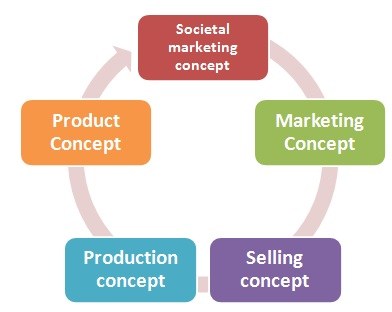Evolution of Marketing
http://www.africaeagle.com/2018/07/marketing-evolution.html
For brands and businesses, marketing is as old as civilization itself. From the olden days up until these modern times, products and services have been sold using various forms of marketing strategies.
In this post, we will take a look at the evolution of marketing overtime from the traditional form of marketing to digital marketing.
Marketing today has evolved into a blend of strategy and technology, unlike the way it was in the past years.
The idea was birthed when people began to trade by barter in ancient times. This continued to grow to the extent where people used persuasive communications to advertise and sell.
Source: Professional Academy
Concept of marketing
The idea of marketing has lasted as long as civilization itself. Business owners have several convictions on marketing strategies they think are best for them. Some of these hypotheses end up failing while others succeed.
The concept of marketing a business’s marketing must involve an analysis of what customers need, and make sure those needs are completely satisfied better than the competition.
In other words, a marketing concept is a philosophy that can guarantee the achievement of business goals through the identification and satisfaction of customers’ needs.
The 5 concepts of marketing are:
- · Production concept
- · Product concept
- · Societal marketing concept
- · Marketing concept
- · Selling concept
The concept of marketing infographic from [iedunote ]
Production concept
The production concept of marketing is one which makes the assumption that customers will respond to any product presented to them at any point in time.
This notion was developed during a period when there was no competition.
A business owner only needed to ensure that production was at a constant increase. There were no selling or marketing problems.
The production concept boosts sales at the initial stages. But a downside to it is that it ignores the interest of the customers to a large extent.
The idea behind the production concept is that customers will purchase products that are available and affordable.
Product Concept
For the product concept, customers patronize products with the best qualities, performance, and innovative features.
The approach to marketing with the product concept is to continuously make improvements to the product being sold.
Selling Concept
The theory of the selling concept is that the only way customers will buy enough products is when the company embarks on a large scale selling and advertising.
Here, the business management seeks to improve on selling transactions instead of establishing profitable relationships with customers.
The marketer assumes that customers who are coaxed into buying the product will like it. But if they don’t like it, they’ll probably lay aside their disappointment and buy it again. This assumption is a very poor and costly one.
Marketing Concept
The marketing concept holds the notion that in order to achieve organizational goals, the needs and wants of the target customer must be known, and delivered to satisfaction better than the competition.
This idea is customer-focused, and it values the customers’ opinion.
Societal Marketing concept
The idea behind the societal marketing concept is that a marketing strategy must deliver value to customers in a way that benefits the customers’ or society’s’ well-being.
This theory calls for a sustainable, and responsible marketing which meets the consumer’s present needs, and also preserves or enhances the ability of future generations to meet their needs.
Societal marketing concept gives preference to human welfare before profits.
What are the aspects of marketing?
The aspects of marketing are grouped into six and they are:
1. Marketing Strategy
2. Marketing Research
3. Digital Marketing
4. Corporate Sales
Marketing strategy
Marketing strategy is an exploratory approach to business planning with the aim of achieving a sustainable competitive advantage.
The analysis carried out here involves scrutinizing the company’s strategic initial solution prior to the formulation.
An effective marketing strategy addresses three questions:
· Where are we now?
· Where are we going?
· How are we going to get there?
In a bid to answer these three questions, skills in both research and analysis are required.
Marketing Research
Marketing research is a set of processes that connect producers and customers to the marketer through identifying and defining marketing opportunities and problems and refining them.
Here, information required to address these issues are specified.
The idea behind marketing research is to identify and access how the changing marketing mix impacts the end-user.
Digital Marketing
Digital marketing refers to all the activities carried out online through digital channels with the aim of selling a product or service.
Simply put, digital marketing, otherwise known as online marketing is the marketing of products and services on the internet. It also includes the use of mobile phones, display advertising, and other digital media.
The different types of digital marketing are:
- Social Media Marketing
- Content Marketing
- Search Engine Optimization [SEO]
- Search Engine Marketing [SEM]
- Affiliate Marketing
- Pay-Per-Click Advertising
- Email Marketing
Corporate Sales
This is also known as Business-to-Business sales (B2B). This involves working in a company that sells directly to other businesses.
A corporate sales team relies on the relationship and consultative selling. Here, decision making is usually long, and it involves multiple stakeholders.
·













